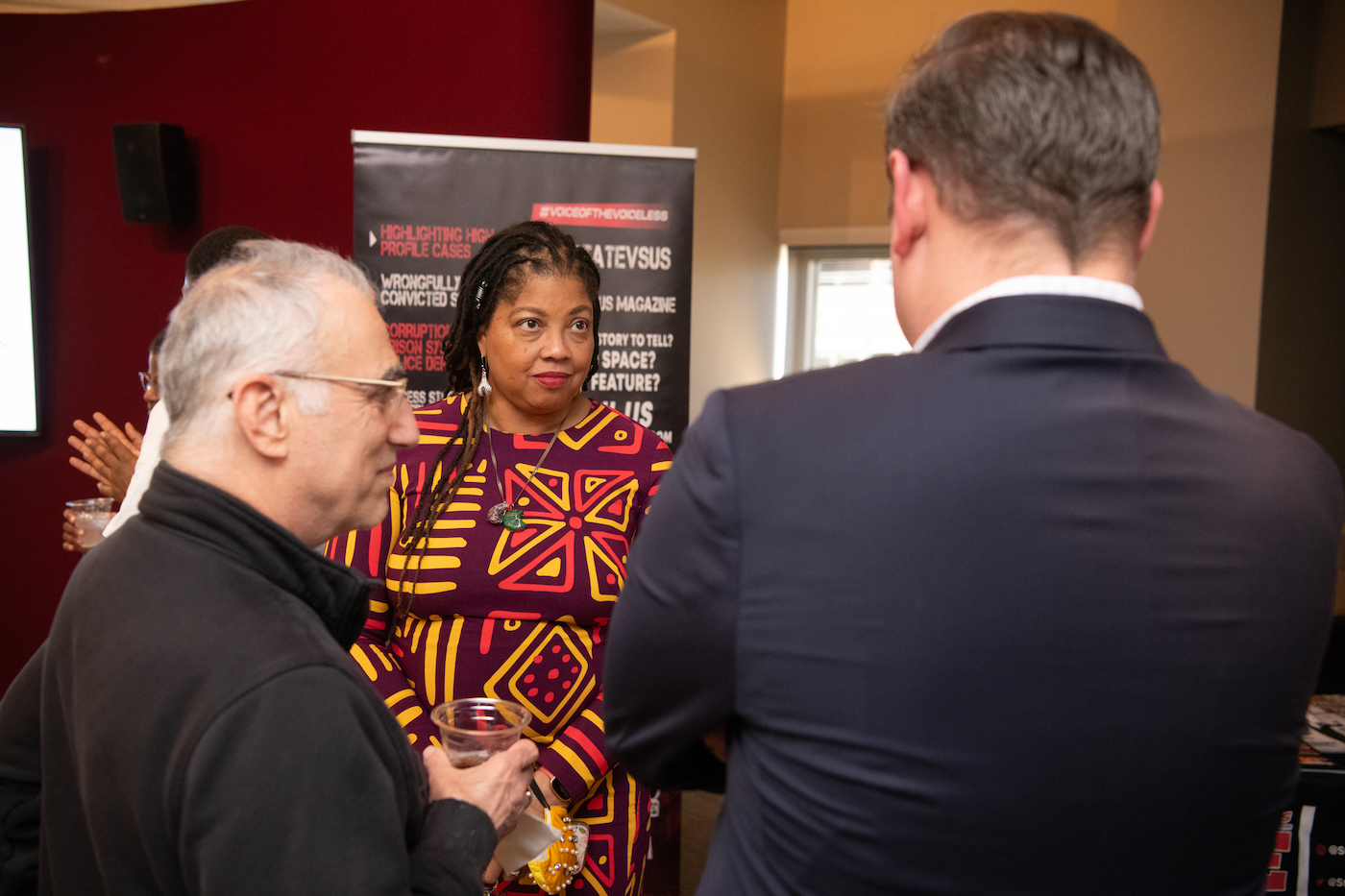Building Bridges to Prevent Violence in Baltimore and Beyond
November 15, 2023 Lorri Angelloz
The UMB Center for Violence Prevention holds “Peace Is a Civil Right” open house, marking its official opening in its new space under the leadership of Nadine Finigan-Carr.
Photo: Nadine Finigan-Carr (center), executive director of the UMB Center for Violence Prevention, speaks with Thomas Scalea (left), physician-in-chief at Shock Trauma, and another attendee at the “Peace Is a Civil Right” open house Nov. 3.
“A wise woman once said, ‘A vision without action is a daydream. Action without vision is a nightmare,’ ” said Nadine Finigan-Carr, PhD, MS, the inaugural executive director of the Center for Violence Prevention (CVP) at the University of Maryland, Baltimore (UMB). “And since I’ve stepped into this role on May 1, I’ve worked with community members to make this vision clearer and to take action toward implementing it.”
Finigan-Carr’s remarks were made during the “Peace Is a Civil Right” open house Nov. 3 that marked CVP’s official opening in its new space on the fourth floor of the Health Sciences and Human Services Library.
Bringing together the expertise and resources of UMB and the R Adams Cowley Shock Trauma Center at the University of Maryland Medical Center, the CVP initiative was announced Sept. 6, 2022. The center’s goal is to take an interdisciplinary approach to violence prevention and intervention by combining the expertise and clinical work from Shock Trauma and the schools of medicine, social work, and law at UMB.
As she welcomed guests to the open house, Finigan-Carr outlined the center’s vision — to help reduce and respond to violence in Baltimore City and well beyond — and discussed the collaborative work that must happen across UMB and the greater community to make that possible. She also outlined the ripple effects of violent behavior, explaining that the center’s goal is to “interrupt and intervene” in all types of violence, specifically nonfatal aggression and assault that are precursors to deadly force.
“Gun violence and homicide, yes, they’re serious, but we need to intervene way before,” she said. “We need to intervene with child abuse and neglect. We need to intervene with intimate partner violence, with human trafficking, with all the forms of violence that are plaguing our city’s residents. We need to do that before it escalates to the level where someone’s life is ever threatened, because at that point it’s way too late.”
Finigan-Carr also emphasized that the issue of violence is concentrated on the city’s youth, saying that in urban communities like Baltimore, interpersonal violence accounts for 25 percent of injuries to young people, 45 percent of hospitalizations, and 85 percent of deaths. In noting that most of those young people live in hypersegregated, majority-Black neighborhoods, she said it’s imperative to focus in those areas, adding that the overall well-being of the city is at stake.
“The youth of today, they’re our leaders, our doctors, our innovators and our entrepreneurs, our politicians for tomorrow,” she said. “Each time we lose someone to violence, our city’s future becomes all that more bleak.”
Funded by a $2 million gift from Betsy Sherman and the Sherman Family Foundation, CVP has started its efforts to bridge programs already in place at UMB. Its initial step was the launch of a survey to identify research, practice, and/or policy projects at the University that work at the city, state, or regional level in addressing violence and promoting healing. (The survey can be found at this link.)